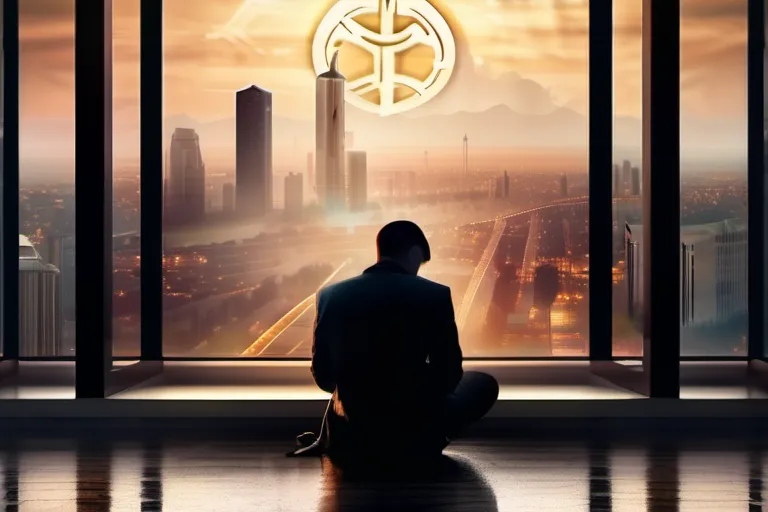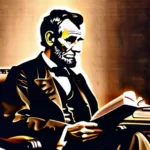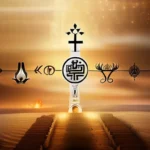Exploring the Relevance of Marx’s Views on Religion in Modern Times
Marx’s views on religion have been a subject of intense debate since his time. In this article, we delve into why his ideas about religion remain relevant and significant in today’s society.
Marx’s Critique of Religion
Imagine religion as a vast, colorful blanket draped over society—a blanket that keeps people warm but also conceals the harsh realities beneath. This blanket serves a purpose; it provides comfort and distraction from the struggles of everyday life. But what if this blanket is more than just comforting? What if it’s also an opiate, something used to dull the pain rather than cure it?
In his critique, Karl Marx saw religion as a powerful tool that keeps the masses docile and compliant in an unjust society. He famously stated that religion is “the heart of a heartless world,” suggesting that religious beliefs serve to mask the true nature of social relations. By focusing on the afterlife or spiritual salvation, religions distract people from addressing the inequalities and injustices they face in their daily lives.
Think about it: if you believe your troubles will be resolved once you enter heaven, why fight for better conditions here on Earth? Religion acts as a ‘safety valve’, releasing pressure but not fixing the root causes of societal problems. It’s like putting a bandage on a deep wound; it might soothe temporarily, but it doesn’t heal.
Marx argued that true liberation comes from addressing these social and economic issues directly. By focusing on material conditions—like wealth distribution, labor rights, and class struggle—the masses could rise above their oppressive circumstances. Religion, in this context, becomes a barrier to achieving genuine freedom and equality.
So, why is Marx’s critique of religion still relevant today? In an era where economic disparities continue to grow and social divisions deepen, the role of religion as an opiate is more pertinent than ever. Understanding Marx’s views can help us critically examine how religious narratives might be used to maintain existing power structures, rather than challenge them.
Religion and Ideology
Imagine religion as a vast, complex tapestry woven through the fabric of society. Just like a weaver carefully intertwines threads to create a sturdy and beautiful design, religious beliefs are intricately knitted into the social and political structures that govern our lives. But what if these beliefs serve not just as a source of comfort or spiritual solace, but also as tools for maintaining power? This is where Karl Marx’s ideas on religion come into play, offering us a profound lens through which to view this relationship between religion and ideology.
Marx saw religion as a form of ideological opiate, a means by which the ruling class maintains control over the masses. But let’s step back for a moment: isn’t it curious how often religious leaders align with political power? How do you think these alliances come to be formed?
In essence, Marx argued that religion acts as a veil, obscuring the real contradictions and injustices within society. By focusing on spiritual matters rather than earthly struggles, people are less likely to question their oppressive conditions or demand change. Is it not true that many religious doctrines emphasize submission and acceptance of one’s lot in life? How does this fit with Marx’s view?
Furthermore, Marx contended that religion serves to justify the status quo by providing a moral framework within which social inequalities can be rationalized. Consider how certain religious teachings are often used to defend economic disparities or traditional power structures. Can you see examples of this in our modern world? How do these ideologies shape people’s perceptions and behaviors?
Understanding Marx’s perspective on religion is crucial because it sheds light on the complex interplay between belief systems and societal hierarchies. By examining how religious beliefs are utilized to maintain power, we can gain a deeper insight into why certain social structures persist and how they might be challenged or transformed.
Marx’s Views on Religion in Modern Times
Why are Marx’s views on religion still relevant today? In our modern world, where social and political issues continue to shape society, it’s crucial to understand how religious beliefs influence these dynamics. Have we truly moved past the era when religion served as a tool for maintaining power structures, or do its echoes reverberate through contemporary politics?
Consider the metaphor of religion as a vast ocean that influences every part of our social landscape. Just as waves can shape the coastline over time, religious beliefs have shaped societies and their structures throughout history. Even in today’s secularized world, these waves still influence how we perceive and interact with each other.
Much like a river that splits into smaller streams, religion often divides communities along ideological lines. Marx argued that religious ideas serve as a form of ‘opiate’ for the masses, dulling their perception of societal injustices. But is this really so? Can’t we see how certain religions continue to justify social hierarchies and economic inequalities?
In many parts of the world today, religious beliefs play a pivotal role in shaping political agendas. Is it not the case that politicians often use religious rhetoric to gain support or legitimize their policies? Are we not witnessing instances where religious doctrines are invoked to maintain power and control over the masses?
Marx’s idea of religion as “the heart of a heartless world” is still pertinent today. The phrase encapsulates how religion can provide comfort in hard times, but also how it can be exploited by those in power. How does this apply to current events? Are we not seeing examples where religious leaders and institutions support or oppose policies based on their perceived benefit to the status quo?
Finally, Marx’s views challenge us to critically examine our own beliefs and their impact on society. In a world fraught with social and political tensions, can we afford to ignore how religion continues to influence these dynamics? By exploring Marx’s ideas, we not only gain insight into historical patterns but also equip ourselves to navigate the complex interplay between religion and power in today’s society.
Religion and Class Struggle
Religion has long been seen as a force that can both unite and divide people, acting like a bridge across different classes but often serving as a barrier to class solidarity. Have we ever stopped to consider how Marx viewed this phenomenon? In his works, Marx delved into the ‘opium of the masses,’ arguing that religion serves not only as a means of consolation but also as an instrument used by the ruling class to maintain control over the working class.
Imagine religion as a vast sea where people find solace from their daily struggles, much like a calm ocean on a stormy day. But beneath this surface, Marx saw it as a complex network that can either unite or separate individuals based on their social status and economic position. By exploring the connection between religion and class struggle, we can understand how religious beliefs can act as both a shield and a sword in the broader battle of ideologies.
Marx believed that religion helps to pacify the working class, making them complacent with their current state by offering them promises of an afterlife or heavenly rewards. This is akin to giving someone a temporary bandage instead of addressing the root cause of their injury. By doing so, the ruling class can divert attention from pressing social and economic issues that could lead to rebellion.
However, it’s essential to recognize that Marx did not see religion as inherently evil or irrelevant. He viewed it more as a tool used by those in power. Just like how a key opens a door, religious beliefs open the minds of the working class to accept their subjugation under false promises of salvation and eternal peace.
So, when we look at today’s society, can we still find echoes of Marx’s observations? Are there instances where religious leaders or institutions are used to keep the working class content with their conditions? How do these dynamics play out in societies that claim to be free from such influences?
The connection between religion and class struggle is a rich tapestry, intertwined with history and politics. By examining Marx’s insights into this relationship, we can better understand how religious beliefs continue to shape our world and the struggles within it. This exploration is crucial for anyone seeking to comprehend the complexities of social and economic inequality in today’s society.
Marx’s Legacy and Religion
Why is Marx on Religion Important in Today’s Society? Marx’s theories offer a unique lens through which to understand the role religion plays in modern times.
Imagine religion as a vast ocean, and Marxism as a powerful compass guiding us through its depths. How does this compass help us navigate today’s complex social landscapes? To answer that question, we must first revisit Marx’s views on religion. In his seminal work, ‘The German Ideology,’ Marx famously stated, ‘Religion is the sigh of the oppressed creature, the heart of a heartless world, and the soul of soulless conditions.’ This metaphor paints religion as a balm to soothe the wounds inflicted by an oppressive society.
But how does this apply today? Consider the global rise of fundamentalist movements in many countries. Are these not manifestations of the very heartache Marx spoke about—a response to societal inequalities and injustices? In contemporary contexts, Marx’s views on religion help us understand why religious groups often emerge during times of economic turmoil or political instability.
Moreover, Marx’s critique of religion as a tool for maintaining social control is more relevant than ever. Think of how religions are used in today’s world to justify policies that favor the wealthy and powerful at the expense of the poor and marginalized. The use of religious discourse to push back against progressive social reforms highlights the enduring relevance of Marx’s ideas.
So, why should we care about Marx’s views on religion? Because they provide us with a critical tool to analyze and challenge the ways in which power operates in society today. By understanding how religion can be manipulated for political ends, we can work towards creating more equitable societies where spiritual needs are met through genuine human interactions rather than institutionalized beliefs.
As we move forward, Marx’s legacy on religion will continue to inform our debates about faith and social justice. Will religions evolve to support a Marxist framework of equality and solidarity? Or will they remain tools for the powerful, as Marx predicted? These are questions that demand our attention in today’s society.
The Future of Religion in a Marxist Framework
Imagine religion as a river flowing through history, its course shaped by the winds of change and the currents of human experience. How does this river fare in a Marxist framework? Can it navigate the challenges posed by economic inequality and social stratification that Karl Marx identified so vividly? In a world where technology and globalization continue to redefine society, how might religious beliefs adapt or transform?
Marx’s critique of religion as ‘the opium of the people’ suggests it often serves to dull the pain of social injustice rather than address its root causes. But what if today’s societal changes prompt a new understanding? Could religion evolve into a force for genuine social change, advocating for justice and equality in a more nuanced way?
In Marx’s vision, religion was seen as an instrument of class struggle, a means by which the ruling class maintained control over the masses. But could this same mechanism be harnessed differently now? What if religious leaders and communities began to challenge the very structures that perpetuate inequality, fostering a more equitable society?
Consider the role of religion in addressing contemporary issues such as climate change or digital privacy. How might religious frameworks offer new perspectives or solutions to these pressing global challenges? Marx’s focus on material conditions could be complemented by a deeper exploration of spiritual and ethical dimensions.
The future role of religion in a Marxist framework is not about obsolescence but transformation. It invites us to reimagine the relationship between faith and activism, between the divine and the social. Will religious institutions become more inclusive and participatory, aligning their teachings with Marx’s call for human emancipation? The possibilities are vast, and only time will tell how this complex interplay unfolds.
Conclusion
 By understanding Marx’s perspective on religion, we can gain valuable insights into the role of ideology in shaping social and political structures, making it crucial to revisit his work in the contemporary context.
By understanding Marx’s perspective on religion, we can gain valuable insights into the role of ideology in shaping social and political structures, making it crucial to revisit his work in the contemporary context.











